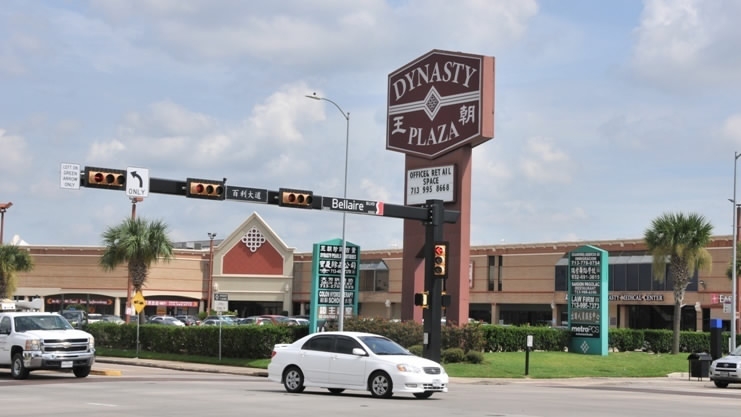In Houston, Texas – the fourth largest city in the United States – two Chinatown business communities have prospered due to an expansion in US-China cultural exchanges.
The first Chinatown is located east of downtown, but today, a second area of the city has emerged as a thriving international district.
In the 1980s, the younger generation of Chinese entrepreneurs gave rise to this new Chinatown, creating a bustling community that covers an area of 16 square km in southwest Houston, roughly 20km from downtown Houston.
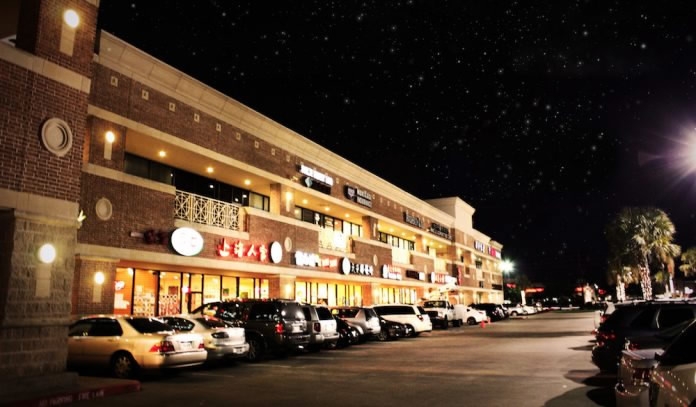
Dun Huang Plaza in Houston’s Chinatown. / Photo via 365thingsinhouston.com
The first business opened in the new Chinatown in 1983, which was designed and developed to meet the needs of America’s car-based society.
Today, thanks to many years of support and nurturing by the local Chinese community, the new Chinatown is home to an array of large and small shops, businesses, supermarkets and national banks, as well as being the shopping and business center for the local Asians population.
Because of the presence of the many banks in what is a relatively concentrated area, this new Chinatown has gained the nickname as “Houston Wall Street”, exemplifying its prosperity and importance.
And the prosperity of this new Houston Chinatown goes hand-in-hand with the rise of the new generation of ambitious and upwardly mobile Chinese.
“In the past, the old immigrants needed to spend a lot of time and hard physical work to make bread (money), so the progress was slow,” said Kenneth Li, chairman of Southwest Management District and member of Houston mayor’s International Advisory Board.
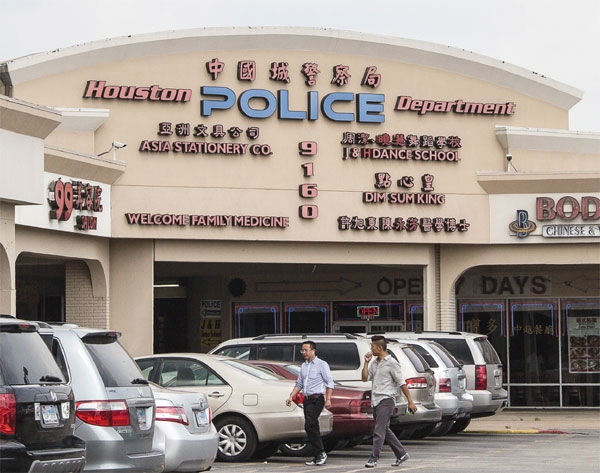
The Houston Police Department’s Chinatown station. /Photo from China Daily
Many young Chinese in Houston are now students and have a high educational background which gives them a bigger advantage in society and the marketplace, Li said in an interview with Xinhua.
Ruling Meng, a retired superconductivity scientist at the University of Houston and founding president of the Chinese Association of Professionals in Science and Technology (CAPST), said that she is a beneficiary of US-China people-to-people exchanges.
“I have always said that I am very grateful to the motherland for my training,” said Meng, who is over 80. “I was a college student in the 1950s in China, and the United States provided me with new opportunities for development.”
Meng said that economic conditions were not good then for Chinese people, but everyone studied hard. Even today, Meng is grateful to those who helped her along the way, and said she founded the CAPST in 1992 in order to give this type of care and support to younger Chinese scholars in Houston’s campuses when .

A shopping center in Houston’s Chinatown. /Photo via texasmonthly.com
Charlie Yao, president and CEO of Yuhuang Chemical Inc., which is based in Houston, is the former chairman of CAPST. He is among the new immigrants from China to the United States.
Many young Chinese today are white-collar professionals who have critical thinking skills and are open-minded, he said.
“China’s vigorous economic growth has helped to promote overseas Chinese to a higher level of living,” Yao said. “No other country in the world has been developing at a rate of more than 10 percent in the past few decades, but China made it.”
Jon R. Taylor, political science professor of University of St. Thomas in Houston, agrees with Yao. He said young Chinese professionals moved to Houston from other parts of the United States in pursuit of job opportunities and a better life, which in turn pushed the development of the new Chinatown in Houston.
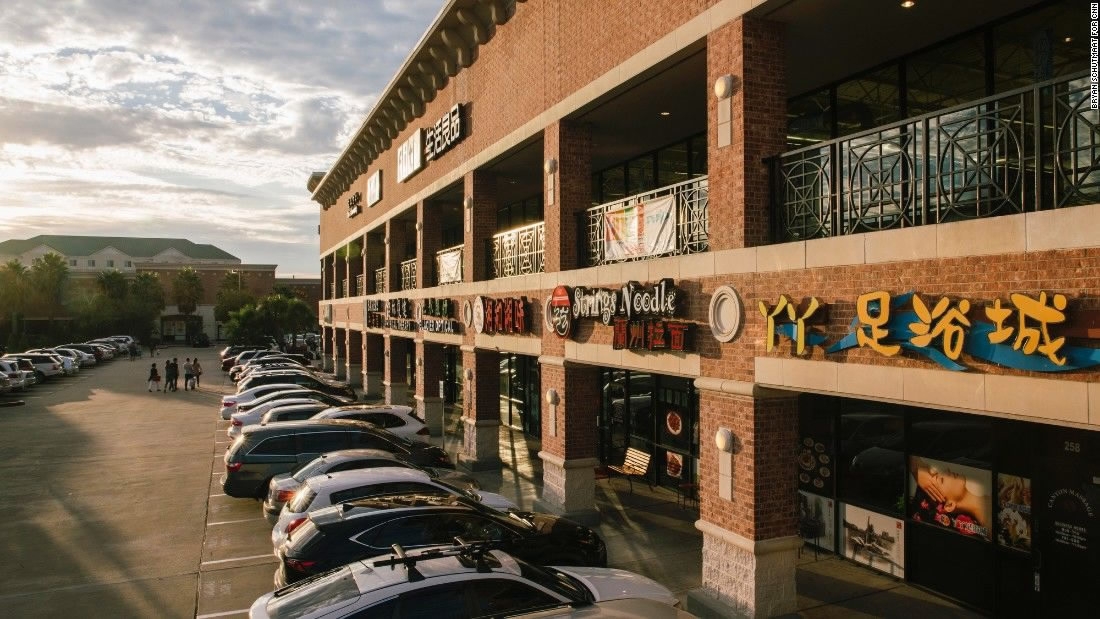
Dun Huang Plaza in Houston’s Chinatown. /CNN Photo
Furthermore, Kenneth Li encouraged the new generation of Chinese to treat American mainstream society as a way of promoting the development of US-China cultural exchanges. It’s a win-win proposition as both cultures learn from and gain knowledge about each other.
Li believes that cultural exchanges are two-way in nature, as some local Chinese groups invite Americans to visit China.
“We should try our best to promote the people-to-people exchanges between China and the United States,” Li said. “With Confucian thought prevailing, Chinese are peace-loving people. We must send that message to the world.”
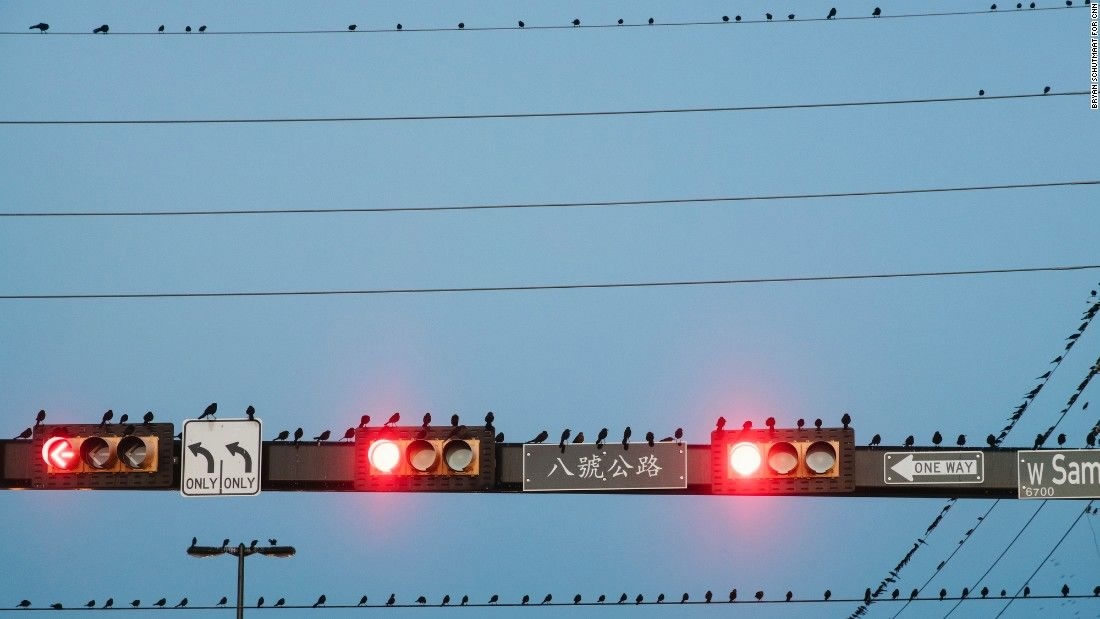
The street signs along Bellaire Boulevard in Houston’s Chinatown are posted in Mandarin characters as well as English script. /CNN Photo
Brian Lantz, a senior executive of Schiller Institute in Houston, said he is glad to see the emerging young generation of Chinese professionals in Houston, both in Chinatown and elsewhere.
“America will benefit from the growing roles of American Chinese and Chinese who are here in business,” he said.
While Chinese people are doing important work in academia and science, they also are bringing about improvements in the greater Houston community, saying, “I think we can all benefit.”




 2017-09-30 17:20 GMT+8
2017-09-30 17:20 GMT+8
